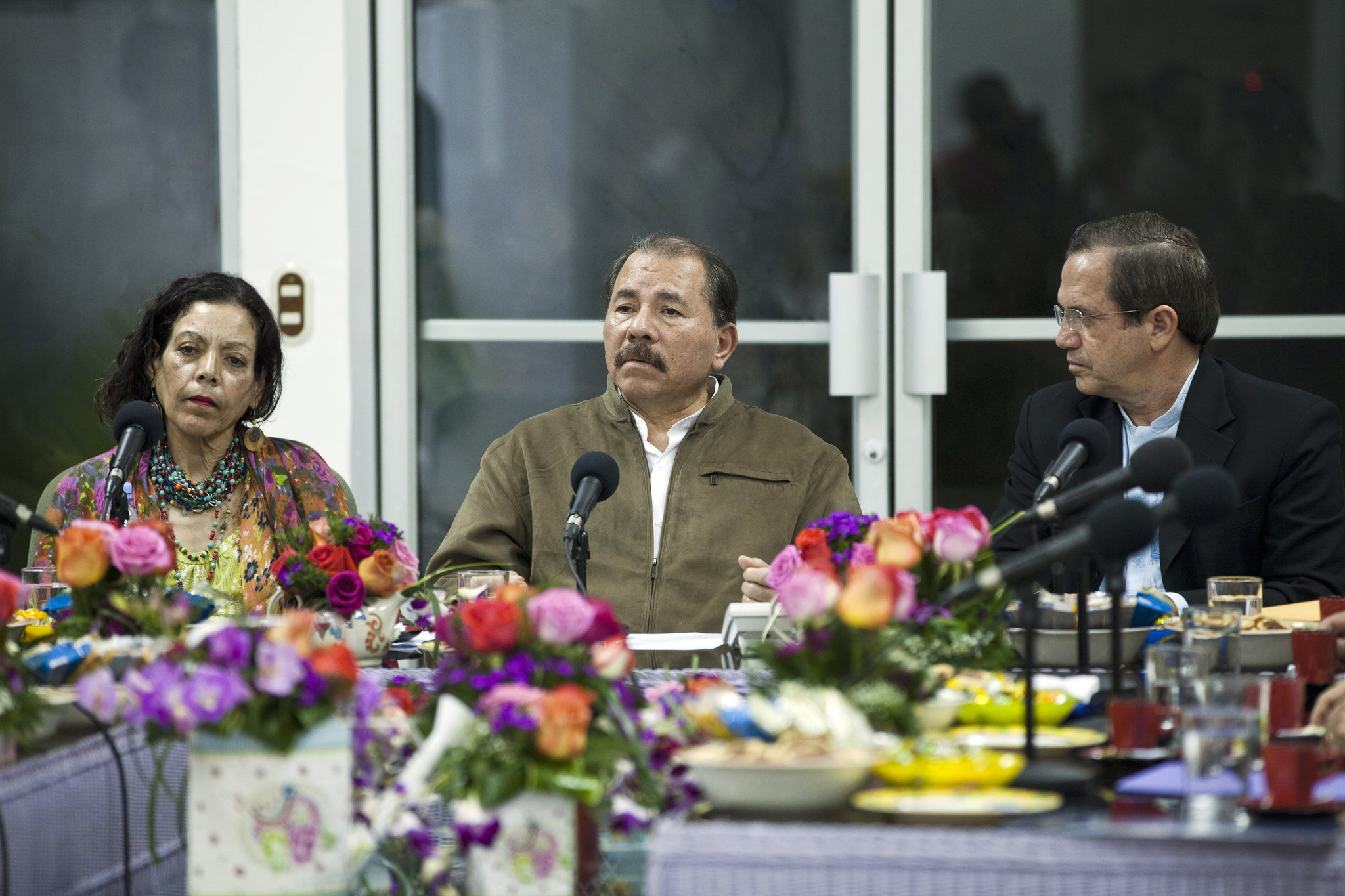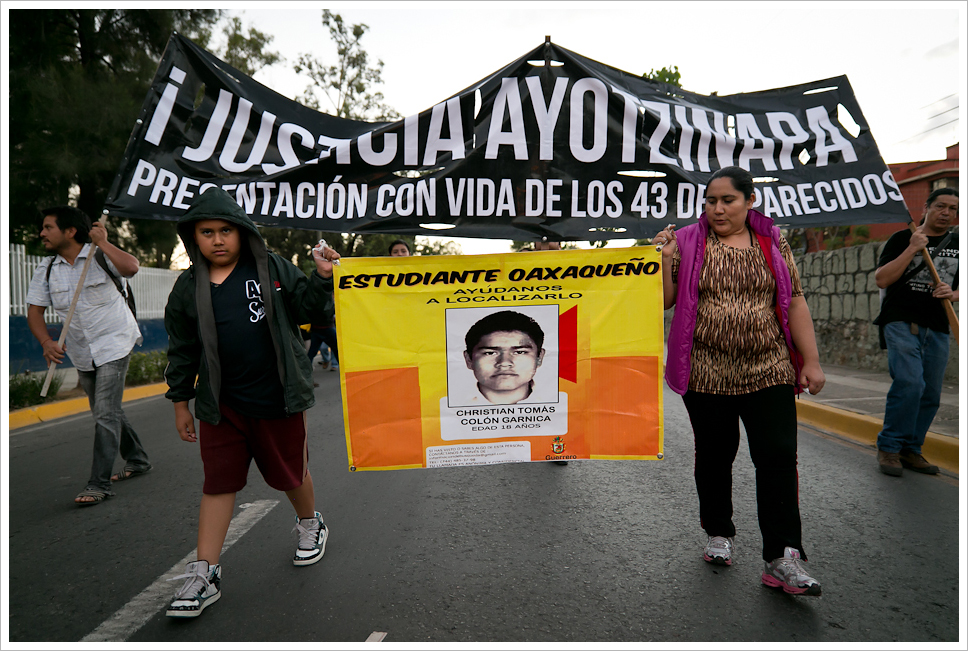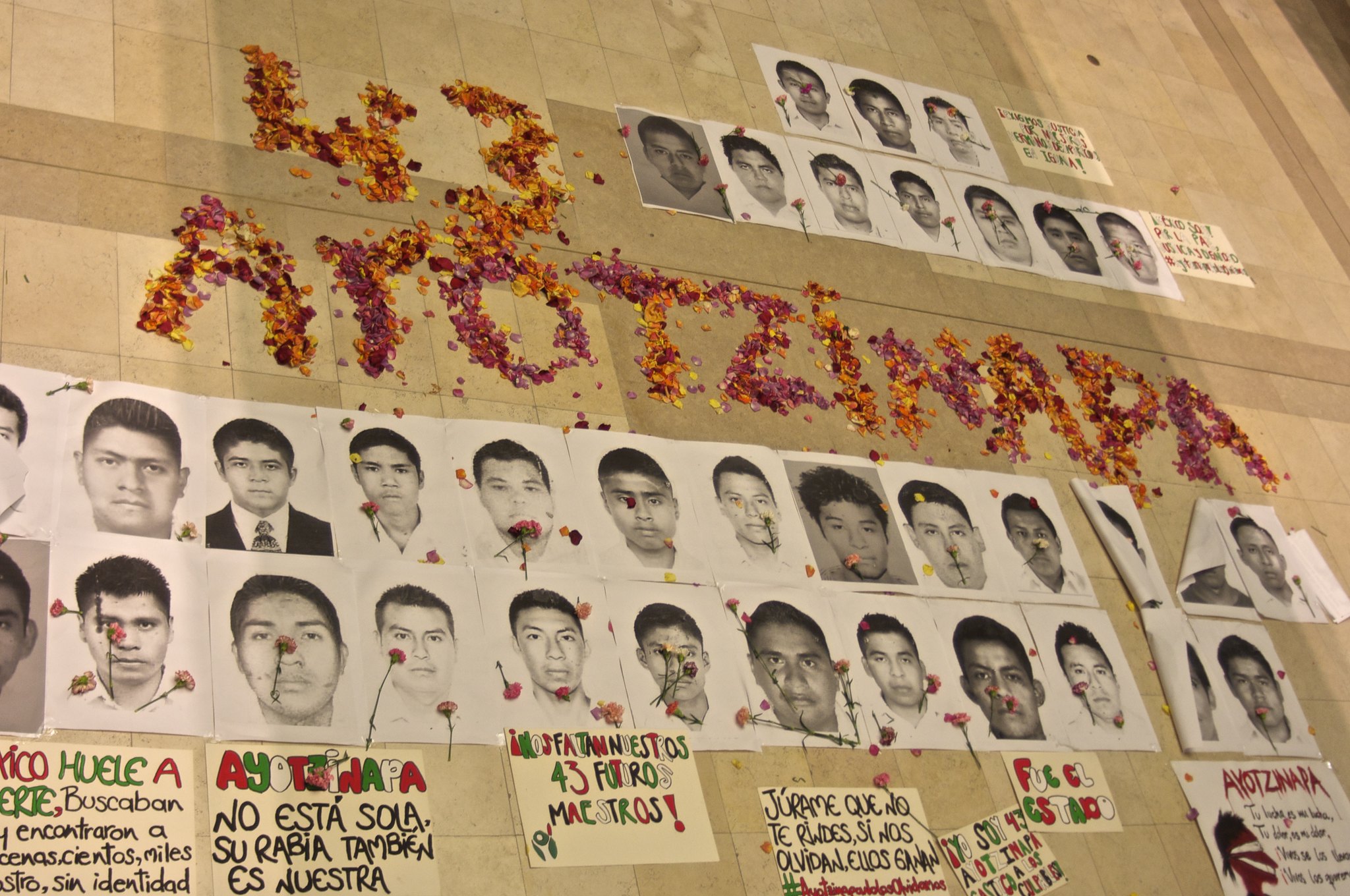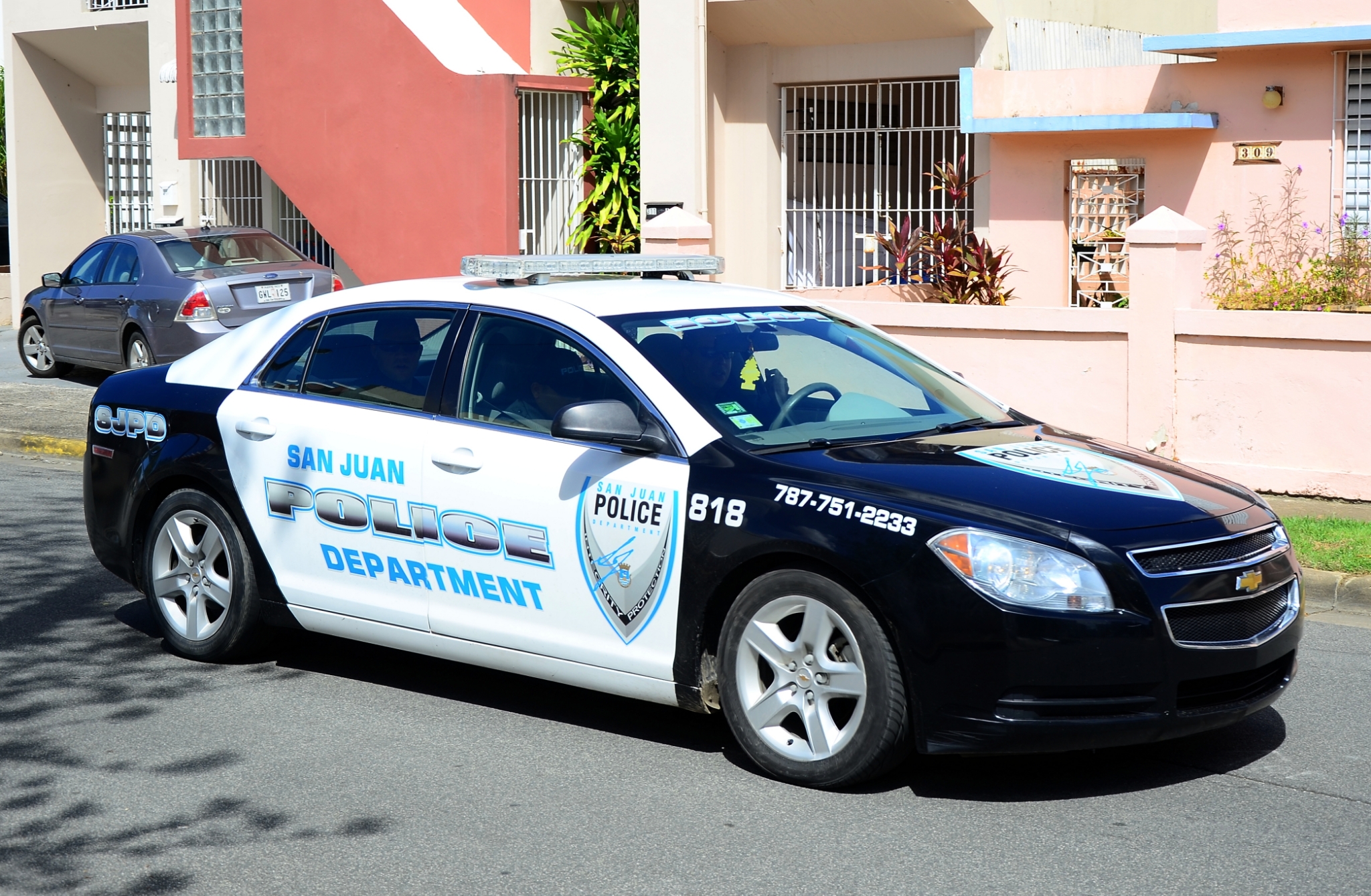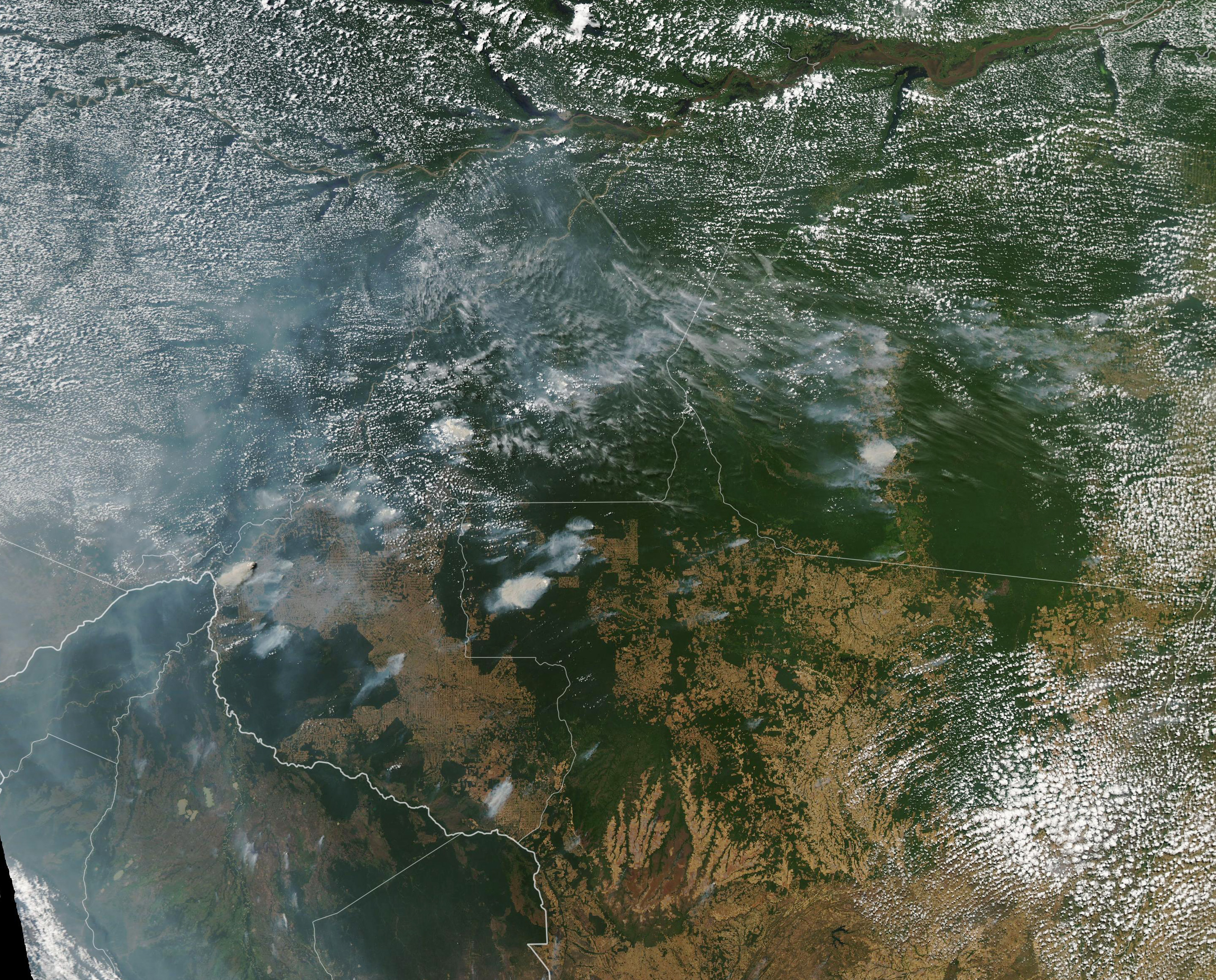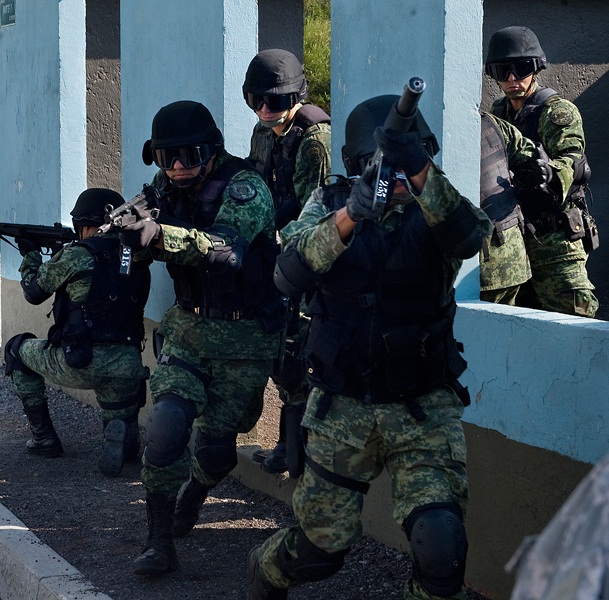
Latin America: Week in Review
Second Mass Shooting in 2 Days Raises Alarms in Mexico
October 17, 2019 By Staff
TODAY IN LATIN AMERICA
MEXICO: In the state of Guerrero, a gunfight between civilians and the Mexican army resulted in 15 deaths, marking the second mass shooting in Mexico in the past two days. One soldier and 14 civilians died during the shootout in the community of Tepochica near Iguala, a city infamous for the disappearance of 43 students in 2014. This comes a day after 13 police officers were killed in Michoacán, following a similar incident now being attributed to cartel violence.
President Andrés Manuel López Obrador defended his militarized police force and blamed past administrations for Mexico’s chronic violence. AMLO issued a “call to peace” in which he demanded that Mexican people “give up their weapons.” Despite the government’s efforts to violence indicators, the number of homicides in Mexico is expected to be higher this year than in 2018.
Headlines from the western hemisphere
SOUTHERN CONE
BRAZIL: New data released yesterday shows that income inequality in Brazil has reached its highest point since 2012. The Brazilian Institute of Geography and Statistics (IBGE) shows that, in 2018, the average monthly income earned by the top 1% of the Brazilian population is equivalent to 33.8 times to that obtained by the poorest 50%. IBGE’s research also shows how the economic slowdown has taken a bigger toll on the poor, who have lost a larger share of their salaries given the lack of a social safety net formerly provided by conditional cash transfer programs like Bolsa Família. Today, 13.7% of households receive the cash transfer in comparison to 15.9% in 2017.
PARAGUAY: The Office of the First Lady (OPD) has launched a nationwide campaign to perform free breast reconstruction surgeries for survivors of breast cancers. Known as “Victory! Because you won the battle,” the campaign is supported by the Paraguayan Society of Reconstructive and Aesthetic Plastic Surgery (SPACPRE) and the country’s Ministry of Public Health. First Lady Luciana Abdo said that the initiative’s main intention is to “improve women’s quality of life.” The surgeries, which will take place at the San Pablo Children’s Hospital and the National Cancer Institute, will begin in November and conclude in December 2020.
ANDES
PERU: Armed forces were deployed to stop Indigenous protests at a Chinese-owned Las Bambas copper mine yesterday. El Peruano, the state’s official newspaper, announced that the government had declared a 30-day state of emergency in the mining corridor of Apurímac-Cusco-Arequipa located in the Chumbivilcas province, suspending some constitutional rights like freedom of assembly. Local media report that barricades and protesters were “peacefully removed.” The Las Bambas mine is said to account for 16% of Peru’s entire copper output.
CENTRAL AMERICA
GUATEMALA: The White House warned Guatemala that it must accept a migratory agreement with the United States in order to receive funds from America Crece, a U.S.-funded regional economic development program for Mexico and Central America. Guatemala’s outgoing president, Jimmy Morales, already agreed to a cooperative asylum deal with the United States in July that would function similar to a third safe country agreement: migrants who pass through Guatemala on their way to the United States would be required to seek asylum in Guatemala. However, the country’s president-elect, Alejandro Giammattei, who will take office in January, has openly criticized the deal and previously called for the third safe country label to be taken off the negotiation table.
CARIBBEAN
HAITI: Yesterday, thousands attended funerals for 11 of the estimated 20 victims who have died as a result of Haiti’s five weeks of deadly protests against President Jovenel Moïse. The funerals quickly dissolved into further protests after mourners clashed with police across six cities, including the capital, Port-au-Prince, where two protesters were injured after presidential guards attempted to block funeral proceedings. Amid chants for Moïse’s resignation, protesters set a police car on fire and burned tires while others hurled rocks. The funerals came a day after the United Nations’ Mission for Justice Support in Haiti ended its operations in the country and a day after Moïse held an unexpected press conference where he stated that he will not resign.
CUBA: The Cuban government will allow its citizens to use 10 different types of foreign currencies to buy goods in state stores. The government intends to open 70 stores in Havana and across the island, where Cubans will be able to legally purchase appliances such as televisions and refrigerators with U.S. or Canadian dollars, Euros or Mexican pesos. The government announced the measure as a way to confront their liquidity problems given the embargo and to compete with the “multi-billion-dollar” informal market operating on the island.
PUERTO RICO: On Tuesday, the U.S. Supreme Court heard arguments on the constitutionality of the appointments to the island’s Financial Oversight and Management Board, which was created under the 2016 PROMESA law and tasked with restructuring the island’s debt of over $120 billion. In 2017, Puerto Rico creditors challenged the board’s composition by arguing that the board’s members were never confirmed by the U.S. Senate, a violation of the so-called appointments clause outlined in the U.S. Constitution. At the end of the 80-minute arguments, the SCOTUS decision appeared to rest on the issue of whether board members are exercising federal or local power. Though a ruling is due by the end of June, the justices signaled their support for the appointments in categorizing the board as a local instrument.
NORTH AMERICA
MEXICO: Mexican oil worker union boss Carlos Romero Deschamps resigned following reports of alleged corruption. President Andrés Manuel López Obrador said two complaints against Deschamps were filed related to how he obtained his income. Deschamps has long been suspected of corruption because he and prominent family members consistently display luxurious goods and own multiple properties. Deschamps is also a senator for the Institutional Revolutionary Party (PRI). The state oil company Petróleos de Mexico and the Pemex workers’ union have not yet made comments about his resignation.
